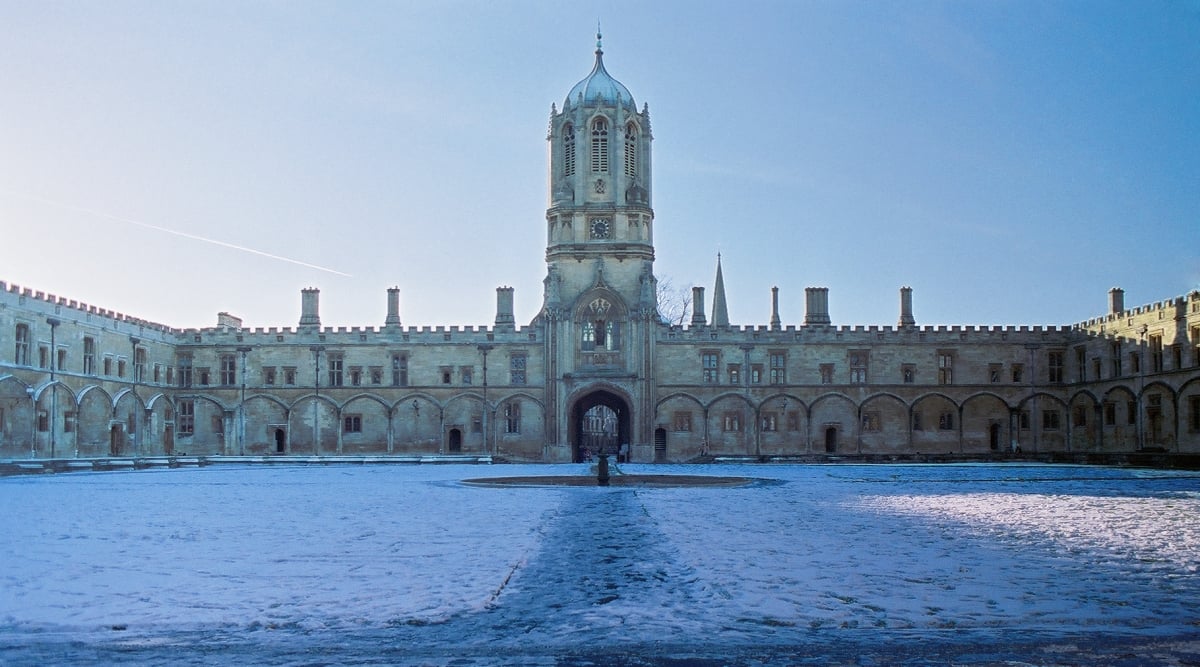Underfoot, beneath the vaulted ceilings of Christ Church Cathedral, is a small, modest plaque. Easy to step on, even easier to walk past, it is not something which draws attention to itself. Take the time to explore the plaques intermingled with the stones, however, and you’ll find a black triangle, bearing a dedication to the great man. Auden was, and still is, a literary giant whose influence stretches through so much modern poetry, not just in Oxford—yet Auden and the University are still bound together over the course of decades, first as student, later as master.
Last week, we looked back on Richard Burton gracing Oxford with his presence, leaving, and then returning for a glorious hero’s welcome. Auden’s journey to and from the city was much the same. However, the educational route of Auden, one of the greatest English poets of all time, was anything but clear-cut. He came to Oxford to study Biology, only to have switched to English by second year and graduated with a third-class degree in 1928.
At Christ Church, he would fall into a group of future poetic stars such as Stephen Spender, Louis MacNeice and Cecil Day-Lewis. They would later be known, rather disingenuously, as the ‘Auden Group’ during the 1930s, which marked their heyday. Their friendship and cross-pollination was a huge influence, both on each other and on the literary scene of inter-war Britain as a whole.
After his studies, Auden left Britain for Berlin, to encounter the physical and political turmoil which would underscore much of his work. After nine months, he returned to Britain, had his first collection of poems published and began to establish himself as one of the finest poets in the country.
Twenty years after graduation, Auden took up the post of Professor of Poetry at the University. He was a hit with the student body, all while bolstering his output with articles, reviews and reading tours, and would eventually retire in Oxford, offered a cottage by Christ Church, while regularly holidaying in Austria.
Auden died in Vienna and is buried there, but his work lives on in the city and college where he made such an impact. Auden’s name is embedded into Christ Church’s Cathedral, much like his presence is embedded into Oxford’s recent history.



